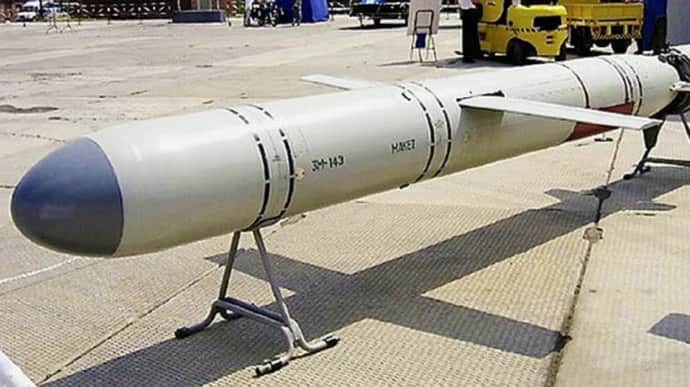ISW assesses capabilities of Russian defenсe industrial base: Not sustainable in long term

Analysts at the Institute for the Study of War (ISW) suggest that the Russian military-industrial base will face a shortage of labour and a reduction in stocks, including due to sanctions, so its capabilities will not be sustainable in the medium and long term.
Source: ISW
Details: Ukrainian military observer Kostiantyn Mashovets assessed Russia’s military capabilities and capacities of the defence industrial base (DIB), which coincide with previous estimates of the ISW.
Mashovets said that the Russian military command aims to create a "strategic reserve" for offensive operations in the spring and summer of 2024 but does not plan to equip these newly created units and formations with the doctrinally necessary amount of weapons and equipment due to the current production restrictions of the Russian defence industry.
Mashovets says the Russian military command plans to equip by the second and fourth quarters of 2024 only the 27th Motorised Rifle Division, which is reportedly in the process of forming based on the existing 21st Motorised Rifle Brigade of the Central Military District, up to 87 per cent of the doctrinally required amount of weapons and equipment, and suggested that the Russian military command has a similar goal in relation to other new formations and units.
Mashovets assessed that it is unlikely that Russian troops will be able to achieve this goal by the fourth quarter of 2024, given that many Russian regiments, brigades and divisions currently operating in Ukraine have only about 30 per cent of the required amount of weapons and equipment.
In addition, several Western and Ukrainian military officials and analysts noted that the tank production figures reported by Russia mostly reflect restored and upgraded tanks taken from storage facilities, rather than new production.
Analysts note that Mashovets' assessment is in line with ISW's assessment that the Russian defence industry is capable of maintaining the current pace of Russian operations, although it is unlikely to be able to fully provide a potential offensive operation at the operational or strategic level using the key reserve of manpower in 2024.
Reports that the Russian military prioritises the creation of new under-equipped units and formations are consistent with the ISW's assessment that Russia prefers the number of manpower and equipment over the quality of its troops.
The ISW continues to believe that Russia will have the opportunity to expand its DIB and accumulate resources if it maintains the initiative throughout the theatre of operations throughout 2024, which will allow it to create conditions for a future offensive operation using a larger stock of manpower and equipment.
Experts suggest that the Russian military command prefers short-term achievements, such as limited territorial gains, to long-term stability and large-scale operationally significant operations in Ukraine.
The ISW estimates that the use by the Russian military command of current changes in the structure of the armed forces to introduce newly formed and understaffed formations into combat operations in Ukraine is likely to limit the immediate effectiveness of these units on the battlefield but will be sufficient to maintain the current pace of operations.
The main variable that will determine the speed at which such partially replenished Russian troops will be able to move forward this summer is the availability of logistics for Ukraine, which, in turn, largely depends on the further provision of military assistance from the United States.
The report concludes that Russia's growth in DIB production is unlikely to be sustainable in the medium and long term, as it will suffer from labour shortages, declining stocks of weapons and equipment, and an inability to fully compensate for military and dual-use goods that it can no longer buy due to sanctions.
To quote the ISW’s Key Takeaways on 11 March:
- A Ukrainian military observer offered assessments of Russian force generation and defence industrial base (DIB) capacities that are consistent with ISW’s previous assessments.
- Russia’s increased defence industrial base (DIB) production is likely not sustainable in the medium and long-term as it will likely suffer from labour shortages, decreased weapons and equipment stockpiles, and an inability to completely compensate for military and dual-use items it can no longer acquire due to sanctions.
- Transfers of North Korean weapons to Russia by sea have apparently resumed after a pause since mid-February 2024.
- A Ukrainian military source noted that Russian forces are increasingly using grenades equipped with chemical substances on the Zaporizhia front, in potential violation of the Chemical Weapons Convention (CWC) to which Russia is a signatory.
- The Moldovan Ministry of Foreign Affairs (MFA) has summoned Russian Ambassador to Moldova Oleg Vasnetsov in response to claims that Russia will operate polling stations in pro-Russian Moldovan breakaway region Transnistria during the Russian presidential election.
- Russia, China, and Iran will hold the joint Maritime Security Belt – 2024 naval exercise in the Gulf of Oman between 11-15 March.
- The Russian Ministry of Foreign Affairs (MFA) claimed that the West intends to use Armenia as a tool against Russia, a notable escalation in its information operations criticising Armenian efforts to distance itself from security relations with Russia.
- Russian President Vladimir Putin signed a bill on 11 March that allows Russian authorities to further restrict actors it deems "foreign agents" to consolidate control over the Russian information space ahead of the presidential election.
- France is reportedly prepared to build a coalition of countries that are open to potentially sending Western military personnel to Ukraine.
- Russian forces recently made confirmed advances near Kreminna, Bakhmut, and Donetsk City.
- Russian President Vladimir Putin continues efforts to cater to Russian servicemembers and their families with the promise of various social benefits.
Support UP or become our patron!







